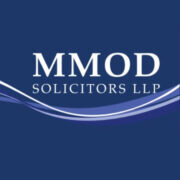Best Restructuring & Insolvency Lawyers in Ennis
Share your needs with us, get contacted by law firms.
Free. Takes 2 min.
List of the best lawyers in Ennis, Ireland
About Restructuring & Insolvency Law in Ennis, Ireland
Restructuring and insolvency law in Ennis follows the national Irish legal framework for corporate and personal financial distress. Ennis is in County Clare and uses the same statutes, court system and statutory agencies as the rest of Ireland. When a business or individual cannot meet their financial obligations, there are formal and informal options - including negotiated agreements with creditors, formal restructuring processes for companies, and personal insolvency solutions for individuals. The law seeks to balance protecting creditor rights with giving viable businesses or individuals a route to recovery or an orderly exit.
Why You May Need a Lawyer
Insolvency and restructuring involve complex legal and commercial issues. A lawyer can help you understand which options are available, the likely outcomes, and the procedural steps to protect your interests. Common situations that require legal help include:
- A creditor threatening enforcement action such as distraint, receivership or legal proceedings.
- A business facing cash-flow collapse and needing to consider examinership, a creditors voluntary arrangement, or a restructuring proposal.
- An individual overwhelmed by unsecured debt and considering a personal insolvency arrangement, bankruptcy or a debt relief notice.
- A director concerned about personal liability or potential wrongful trading claims.
- A secured creditor needing to appoint a receiver or enforce security, and wanting to ensure enforcement is lawful and effective.
- Disputes between creditors about priorities, or issues around the valuation of security and claims in a liquidation.
Local Laws Overview
Key legal frameworks and concepts that apply in Ennis include:
- Companies Act - Governs company formation, duties of directors, and procedures for liquidation and solvent winding up.
- Insolvency legislation - The Personal Insolvency Act provides personal insolvency arrangements, debt relief notices and mechanisms for individuals. Corporate insolvency options include examinership, receivership and liquidation.
- Examinership - A court-supervised process intended to give a company breathing space from creditors while a restructuring plan is prepared. Examinerships generally require court application and evidence of reasonable prospects of survival.
- Receivership - A remedy usually initiated by a secured creditor holding a fixed or floating charge. A receiver enforces security to realise assets for the benefit of the appointing creditor and other secured parties.
- Liquidation - A process to wind up an insolvent company and distribute its assets to creditors. This can be voluntary or court-ordered. Liquidation protocols determine creditor priorities and the role of liquidators.
- Personal insolvency options - Individuals may seek an agreed Personal Insolvency Arrangement with creditors, a Debt Relief Notice for low-income low-asset situations, or bankruptcy where appropriate. Eligibility rules and creditor voting requirements apply.
- Courts and procedure - Complex corporate insolvencies such as examinerships and many compulsory liquidations are handled in the High Court. Other matters may be heard in the Circuit Court, depending on the nature and value of the dispute. Insolvency practitioners, the Insolvency Service of Ireland and the Courts Service play roles in administering processes.
Frequently Asked Questions
What is the difference between examinership, receivership and liquidation?
Examinership is a court-supervised rescue process intended to give a struggling company temporary protection from creditors while a plan to restructure the company is prepared. Receivership is an enforcement action usually carried out by a secured creditor to realise assets covered by their security. Liquidation is the formal winding up of a company and distribution of its assets to creditors when the company is insolvent or cannot continue.
Can I keep my home if I enter a personal insolvency arrangement or bankruptcy?
Outcomes vary depending on your circumstances, the value and equity in your home, and the terms negotiated with creditors or imposed by the court. In some personal insolvency arrangements it is possible to retain the family home by restructuring secured debt; in bankruptcy the trustee may realize significant equity. You should discuss your situation with a lawyer or an insolvency practitioner to understand the practical options.
How do I find a suitable lawyer or insolvency practitioner in Ennis?
Look for solicitors or firms with experience in restructuring and insolvency, corporate rescue, and personal insolvency. Consider professional memberships, relevant case experience, and client references. Ask about fees and whether the initial consultation is free or fixed-fee. Local professional directories, the Law Society and referrals from accountants or business advisers can help identify experienced advisers in Ennis.
What immediate steps should I take if creditors are threatening legal action?
Gather financial records, do not ignore written demands, and seek legal advice promptly. Early communication with creditors, possibly through a lawyer, can sometimes pause enforcement and create room to negotiate. Avoid transferring or hiding assets as that may lead to allegations of wrongful conduct. An experienced lawyer can advise on options such as voluntary arrangements, negotiating payment plans, or, if suitable, applying for formal protection like examinership.
Will directors be personally liable for company debts?
Directors have statutory duties and can face personal liability in certain circumstances, such as wrongful trading, breaches of duty, or transactions at an undervalue. Personal exposure depends on the facts, whether personal guarantees were given, and whether directors failed to comply with statutory obligations. Directors should seek legal advice early to understand and manage potential risks.
What is a Personal Insolvency Arrangement (PIA) and who can use it?
A Personal Insolvency Arrangement is a negotiated agreement between an individual debtor and qualifying creditors to restructure debts over an agreed period. It can involve write-downs, extended payment terms, or rescheduling secured debts. Eligibility and creditor voting rules apply. A solicitor or authorised insolvency practitioner can advise whether a PIA is feasible in a particular case.
How long do insolvency processes usually take?
Duration varies widely. Negotiated arrangements may be concluded within weeks or a few months. Examinerships and complex corporate restructurings commonly take several months and require court approval. Liquidations and receiverships depend on asset realisation and creditor claims and can take many months or longer. Personal insolvency arrangements and bankruptcy timelines also differ based on the chosen route and complexity.
Can creditors force me into bankruptcy or liquidation?
Creditors can petition the court to place a company into compulsory liquidation or an individual into bankruptcy subject to meeting legal requirements. However, courts consider the circumstances, and there may be defences or alternative arrangements available. Early legal advice can help explore options to avoid compulsory processes or to negotiate terms that limit disruption.
What are the costs involved in insolvency or restructuring processes?
Costs depend on the procedure, the complexity of the case, and the adviser you engage. Court applications, insolvency practitioner fees, solicitors fees and accounting costs can all arise. Some processes involve creditor voting and court hearings that attract additional expenses. A good adviser should provide an estimate of likely costs and explain funding arrangements at the outset.
Where can I get free or low-cost advice before engaging a solicitor?
Initial free or low-cost guidance may be available from local business supports, Citizen Information centres, or national advisory bodies. You can also contact local enterprise supports for business advice, or professional bodies that sometimes run clinics or referral services. These resources can help you understand your options before committing to paid legal services.
Additional Resources
Helpful bodies and organisations to consult when seeking information or assistance include national and local agencies that deal with insolvency, business supports and consumer information. Consider contacting or researching the following organisations for guidance and official information:
- The Insolvency Service of Ireland - the statutory body that administers personal insolvency processes and provides information on debtor options.
- Companies Registration Office - for company records and filings relevant to insolvency proceedings.
- Courts Service of Ireland - for information on court procedures and where different insolvency matters are heard.
- Law Society of Ireland - for finding qualified solicitors and understanding professional standards.
- Citizens Information - for general guidance on consumer and personal debt issues.
- Local Enterprise Office, County Clare - for business advice and supports available locally in Ennis and County Clare.
- Insolvency practitioners and licensed accountants - for practical restructuring and administration assistance.
Next Steps
If you are facing financial difficulties in Ennis, take these practical steps:
- Gather documents - collect bank statements, loan agreements, promissory notes, security documentation, creditor correspondence and recent management accounts.
- Get initial advice - arrange a meeting with a solicitor experienced in restructuring and insolvency. Ask for a clear explanation of options and likely costs.
- Communicate with creditors - avoid ignoring demands. Where possible, engage through your solicitor to explore temporary relief or negotiated arrangements.
- Consider specialist help - speak to an insolvency practitioner or chartered accountant for valuation, creditor negotiation and formal process administration.
- Evaluate informal options - restructuring outside court, voluntary arrangements and payment plans can sometimes be the quickest and least costly path.
- Prepare for formal routes if needed - if formal protection or enforcement is likely, your adviser will explain the steps, timing and implications for directors, owners and employees.
Remember that every situation is different. This guide provides an overview but not legal advice. A qualified solicitor or authorised insolvency practitioner can assess your specific circumstances and recommend the best course of action for you in Ennis.
Lawzana helps you find the best lawyers and law firms in Ennis through a curated and pre-screened list of qualified legal professionals. Our platform offers rankings and detailed profiles of attorneys and law firms, allowing you to compare based on practice areas, including Restructuring & Insolvency, experience, and client feedback.
Each profile includes a description of the firm's areas of practice, client reviews, team members and partners, year of establishment, spoken languages, office locations, contact information, social media presence, and any published articles or resources. Most firms on our platform speak English and are experienced in both local and international legal matters.
Get a quote from top-rated law firms in Ennis, Ireland — quickly, securely, and without unnecessary hassle.
Disclaimer:
The information provided on this page is for general informational purposes only and does not constitute legal advice. While we strive to ensure the accuracy and relevance of the content, legal information may change over time, and interpretations of the law can vary. You should always consult with a qualified legal professional for advice specific to your situation.
We disclaim all liability for actions taken or not taken based on the content of this page. If you believe any information is incorrect or outdated, please contact us, and we will review and update it where appropriate.









